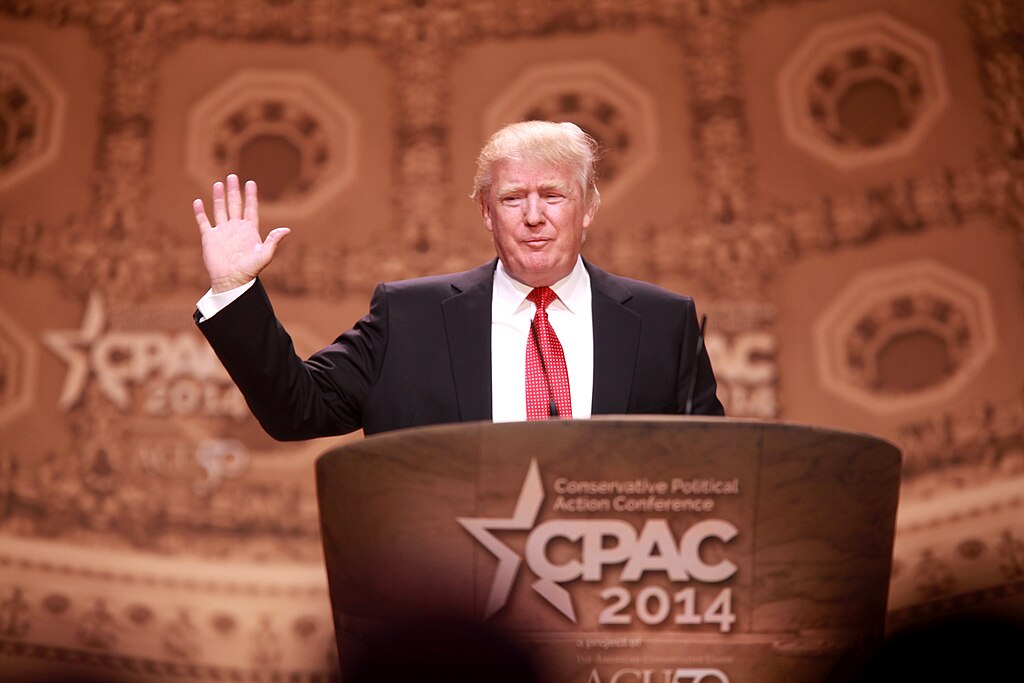Donald Trump’s return to the presidency in 2025 has reignited debates over U.S.-China relations, with his administration unveiling a series of aggressive policies aimed at rebalancing the global economic and political landscape. The former president, known for his hardline approach to Beijing, has wasted no time in setting the tone for a contentious relationship, focusing on trade, military tensions, and technological competition.
Trade Relations Take Center Stage
Revisiting Tariffs and Supply Chains
One of Trump’s first moves was reinstating tariffs on Chinese imports, a hallmark of his earlier presidency. This time, the emphasis has shifted toward targeting industries critical to national security, such as semiconductors, rare earth minerals, and pharmaceuticals. According to White House officials, the administration aims to curtail China’s economic dominance while encouraging U.S. companies to diversify supply chains and invest domestically.
Critics argue, however, that the renewed tariffs could exacerbate inflation and strain global supply chains. A recent analysis by the Peterson Institute for International Economics warned that these policies might increase costs for American consumers, particularly in sectors heavily reliant on Chinese goods. Despite this, Trump’s supporters praise his commitment to holding Beijing accountable, with one social media user declaring, “Finally, a president who puts America first!”
Tech Decoupling and Export Controls
Beyond tariffs, Trump’s administration has expanded export controls on sensitive technologies, including artificial intelligence and quantum computing. The aim is to prevent China from acquiring tools that could bolster its military and surveillance capabilities. In response, Beijing has accused Washington of economic sabotage, fueling tensions in diplomatic circles.
Geopolitical Flashpoints: Taiwan and the South China Sea
Taiwan Policy Sparks Controversy
Trump has also taken a more assertive stance on Taiwan, emphasizing military support and pledging increased arms sales to the island. While his administration maintains that these measures are designed to deter Chinese aggression, Beijing views them as provocations, leading to heightened military drills near Taiwanese waters.
Critics warn that Trump’s approach could risk open conflict in the Indo-Pacific region. However, proponents argue that a firmer U.S. stance is necessary to uphold democratic values and maintain stability in the area. Twitter user @FreedomWatcher posted, “Trump isn’t backing down from China, and that’s the strength America needs right now.”
South China Sea Strategy
In addition to Taiwan, Trump has intensified freedom-of-navigation operations in the South China Sea. These maneuvers, conducted by the U.S. Navy, aim to challenge China’s territorial claims and safeguard international shipping lanes. Beijing has condemned these actions as violations of its sovereignty, further straining diplomatic ties.
Netizens React: A Nation Divided
- @PatriotPride: “Finally, someone standing up to China! Trump is the leader we need in these challenging times.”
- @GlobalObserver: “Trade wars aren’t diplomacy. Trump’s policies could lead us down a dangerous path.”
- @TechShield: “Limiting China’s access to sensitive tech is smart, but will it hurt innovation in the long run?”
- @EcoAdvocate: “More tariffs mean more inflation. How is this helping everyday Americans?”
- @DefenseHawk: “Trump’s Taiwan policy is bold, but will Beijing see it as a line they can’t cross?”
- @TradeGuru: “If supply chains diversify, it could create jobs at home. Let’s hope this pays off.”



 Trump Launches Operation Epic Fury: U.S. Strikes on Iran Mark High-Risk Shift in Middle East
Trump Launches Operation Epic Fury: U.S. Strikes on Iran Mark High-Risk Shift in Middle East  U.S.-Israel Strike on Iran Escalates Middle East Conflict, Trump Claims Khamenei Killed
U.S.-Israel Strike on Iran Escalates Middle East Conflict, Trump Claims Khamenei Killed  Philippines, U.S., and Japan Conduct Joint Naval Drills in South China Sea to Boost Maritime Security
Philippines, U.S., and Japan Conduct Joint Naval Drills in South China Sea to Boost Maritime Security  Argentina Senate Approves Bill to Lower Age of Criminal Responsibility to 14
Argentina Senate Approves Bill to Lower Age of Criminal Responsibility to 14  Denver Mayor Orders Police to Protect Protesters, Restricts ICE Access to City Property
Denver Mayor Orders Police to Protect Protesters, Restricts ICE Access to City Property  Trump Media Weighs Truth Social Spin-Off Amid $6B Fusion Energy Pivot
Trump Media Weighs Truth Social Spin-Off Amid $6B Fusion Energy Pivot  Israel Launches Fresh Strikes on Iran After Death of Supreme Leader Ayatollah Khamenei
Israel Launches Fresh Strikes on Iran After Death of Supreme Leader Ayatollah Khamenei  Pentagon to Halt Ivy League Programs for U.S. Military Officers Starting 2026
Pentagon to Halt Ivy League Programs for U.S. Military Officers Starting 2026  Pentagon Leaders Monitor U.S. Iran Operation from Mar-a-Lago
Pentagon Leaders Monitor U.S. Iran Operation from Mar-a-Lago  U.S.-Iran Nuclear Talks Show Progress but No Breakthrough Amid Rising Military Tensions
U.S.-Iran Nuclear Talks Show Progress but No Breakthrough Amid Rising Military Tensions  Trump Floats Ted Cruz for Future U.S. Supreme Court Nomination
Trump Floats Ted Cruz for Future U.S. Supreme Court Nomination  Trump to Address Nation as U.S. Launches Strikes in Iran, Axios Reports
Trump to Address Nation as U.S. Launches Strikes in Iran, Axios Reports  Iran Supreme Leader Ayatollah Ali Khamenei Killed in Israeli, U.S. Strikes: Reuters
Iran Supreme Leader Ayatollah Ali Khamenei Killed in Israeli, U.S. Strikes: Reuters  Israel Declares State of Emergency as Iran Launches Missile Attacks
Israel Declares State of Emergency as Iran Launches Missile Attacks  ICE Hiring Surge Raises Vetting Concerns Amid Rapid Expansion
ICE Hiring Surge Raises Vetting Concerns Amid Rapid Expansion  Macron Urges Emergency UN Security Council Meeting as US-Israel Strikes on Iran Escalate Middle East Tensions
Macron Urges Emergency UN Security Council Meeting as US-Israel Strikes on Iran Escalate Middle East Tensions  Trump Floats “Friendly Takeover” of Cuba as Rubio Reportedly Engages in Talks
Trump Floats “Friendly Takeover” of Cuba as Rubio Reportedly Engages in Talks 
































